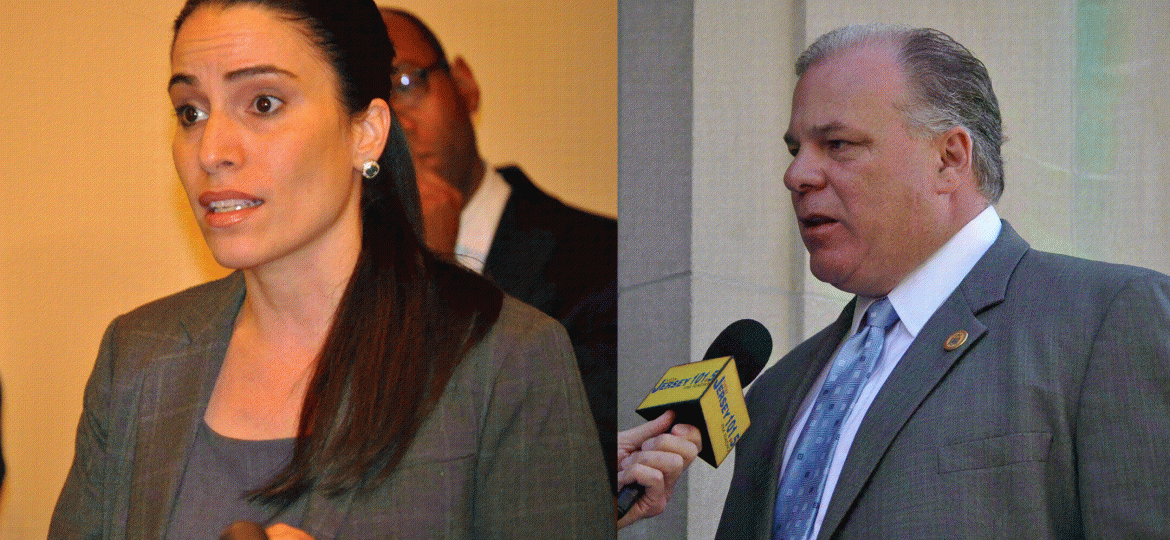
TRENTON – Seeking to remedy a school funding system that underfunds 80 percent of New Jersey’s school districts, legislation authored by Senate President Steve Sweeney and Senator M. Teresa Ruiz was approved by the Senate Education Committee today with a vote of 3-0. The new bill, SCR-119, would create a special commission to develop a school funding reform plan to bring all districts to full funding within five years.
“We know that we need a plan to restore fairness and equity to New Jersey’s school aid formula with a plan to ramp up school funding to bring districts closer to full funding each year,” said Senator Sweeney. “We should not be short-changing our children and we should not leave in place a school aid formula that has the property taxpayers of some towns subsidizing the property taxes of others.”
“Students across the state deserve access to a quality education and that means ensuring adequate funding for every child. This proposal seeks to bring all schools to 100 percent of adequacy, providing districts with the resources they need to give students a strong foundation for academic success,” said Senator Ruiz, chair of the Senate Education Committee. “This is a responsible plan that returns to the mission of the school funding formula that money follows the child. We know the transition must be done in a deliberative manner, and we are committed to ensuring that happens.”
Replacing the legislation previously introduced, the new bill will take the governor out of the process with a concurrent resolution needing approval by the Senate and Assembly but not the governor’s signature. It also expands the membership of the commission from four to six with specific representation from the teachers’ union and a professional educational organization. The appointments would be made by Democratic and Republican legislative leaders.
Assemblywoman Joann Downey and Assemblyman Eric Houghtaling will sponsor the legislation in the Assembly.
“Education is the essence of American opportunity,” said Assemblywoman Downey. “It levels the playing field and makes the system fair. Our current state school funding formula was developed with the best intentions, but now its inadequacies are holding back the children that it once intended to help. Reforms are needed and educational fairness must be restored.”
Senator Sweeney said he expected the plan to include increased state funding of as much as $100 million annually over the five-year timeframe.
The commission will put the plan into legislation that will have to be approved or rejected in its existing form with up-or-down votes by the Legislature.
The state needs to address the growing disparities in school funding throughout the state, the legislators said.
“We need to find the way to remedy a school funding process that has resulted in 80 percent of New Jersey’s school districts being underfunded,” said Assemblyman Houghtaling. “The basic principle of the current school funding law was the right thing to do but we haven’t lived up to the promise. State aid was to be distributed fairly and equitably based on a formula that takes into account each town’s property tax base, its ability to pay, increases and decreases in enrollment, and the special needs of the children.”
Under the proposed legislation, a six-member “State School Funding Fairness Commission” would be established and given until June 2017 to develop a plan that would bring every school district in the state to full funding within five years.
The commission will consist of six public members, with two members appointed by the Senate President, one of whom will represent a New Jersey teachers’ union; one appointed by the Senate Minority Leader, two appointed by the Speaker of the General Assembly, one of whom will represent a New Jersey education professional association, and one member appointed by the Assembly Minority Leader. The members must have knowledge and experience in public school and state budgeting and finance. The commission will be staffed by the Office of Legislative Services.
The commission will conduct at least three public hearings, one in the northern, central, and southern regions of the state, during the course of the commission’s study and at least three additional public hearings after the report is issued.
The commission will study the impact of adjustment aid and the enrollment growth cap, assess the impact of tax growth on the ability of school districts to fund their schools, look at per-pupil administrative costs, the fairness of the current equalized valuation and income measure, and the impact of property tax abatements.
Senator Sweeney, Senator Ruiz, Democratic legislators, school officials from throughout the state and a host of education advocacy organizations have participated in roundtable discussions, tours of local schools and meetings to gain input on the initiative and to generate support for the plan, gaining widespread support in the process.

